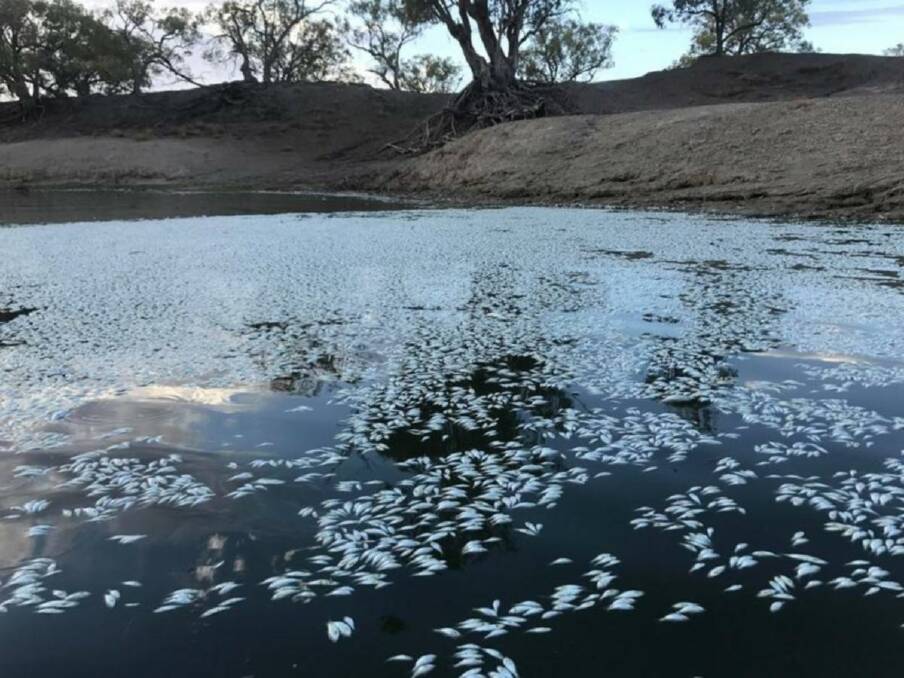
A significant shake up of the Murray Darling Basin Authority has never been more likely, as unprecedented scrutiny zeroes in on the federal agency that the Productivity Commission says is dysfunctional.
Subscribe now for unlimited access to all our agricultural news
across the nation
or signup to continue reading
One of the most likely outcomes of the public pressure, spurred by fish kills at Menindee, is for the MDBA to be split in two in an attempt to give pressured politicians some breathing room.
Three scientific inquiries are investigating the fish deaths, the PC has released its comprehensive review of the MDBA and the South Australian government is expected to release the findings from its Basin Plan Royal Commission shortly.
It remains to be seen what recommendations come from the Royal Commission and the scientific inquiries, variously requested by the federal government, Opposition, and NSW Labor.
But the intense public scrutiny on state and federal water ministers puts in the spotlight the MDBA, an agency established in 2012 to oversee the Basin Plan to restore environmental flows to the river system.
The PC’s final report, released last week, echoed its preliminary report in August which found many areas of the Basin Plan are in good shape.
But said the MDBA was created with conflicting roles and should be split into two independent bodies – a Corporation and a Regulator.
“These conflicts cannot be successfully managed through internal controls. In its current form, the MDBA cannot be a trusted adviser to Basin Governments and a credible regulator,” the report said.
Basically the MDBA marks its own homework.
The Corporation would advise the states in design of crucial water recovery infrastructure, river operations and policy.
The Regulator would get out on the ground and check the projects and policies are working on the ground.
A reform such as this would be a move to address concerns of Menindee residents, environmentalists and many in the broader public who question why the MDBA oversaw large releases of water in the lead-up to the fish kill.
The states have proposed 37 water saving projects across the Basin and are required to finalise 36 Water Resource Plans, due by July next year, that divvy up water take between competing uses valley-by-valley across the Basin.
The PC said the plans are so far behind schedule the deadline must be delayed.
The projects that states are working on are designed to move water more efficiently and in turn reduce the volume recovered from irrigators by a total of 605 gigaltires.
The projects will be assessed in 2024 under the Basin Plan rules. If they’re found inadequate the Commonwealth has to re-enter the market get more water.
That will likely mean more water buybacks to the tune of $564 million and disruption for farmers, less irrigation for Basin towns and more cost to taxpayers.
National Irrigators chief executive Steve Whan backed the PC’s call to split up the MDBA and echoed its concerns over state projects, pointing out the risk of further water recovery to irrigators if the projects fail.
“These projects must achieve the environmental benefits intended, if not we risk more water being taken out of productive use,” Mr Whan said.
“We need to see greater community consultation and transparency along with maximum flexibility to achieve the projected environmental outcomes.”
SA government is expected to release the Royal Commission report shortly and the fish kill inquiries will start reporting from February 10.
The NFF has welcomed the prompt release of the Productivity Commission's five-year assessment of the Murray-Darling Basin Plan. This report contains a number of robust recommendations that will undoubtedly improve the implementation of the plan.
"It is significant to note that halfway through the implementation of the plan the environment has already more than 2000 gigalitres of water available to it," Mr Gordon said.
"Recommendations from the Productivity Commission to strengthen the value of the environmental planning will further enhance environmental outcomes."
The National Farmers Federation Water Taskforce chairman Les Gordon said the PC report contains a number of robust recommendations that would improve the implementation of the plan.
"It is significant to note that halfway through the implementation of the plan the environment has already more than 2000GL of water available to it," Mr Gordon said.
Mr Gordon said he expected the Royal Commission to be “adventure into competing legal views” on the Basin Plan.
"We urge decision makers to not be distracted by those issues and instead focus on the issues of today and tomorrow, and that is delivering on the Plan that is bipartisan and has the support of the six governments who have a direct interest," concluded Mr Gordon.


